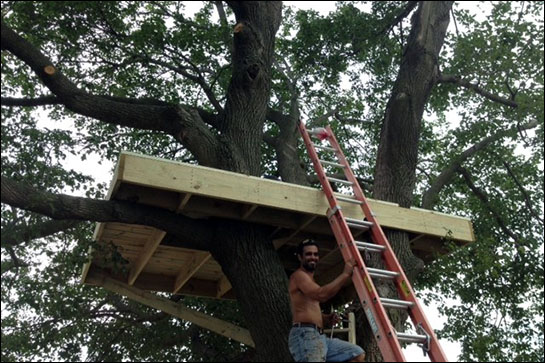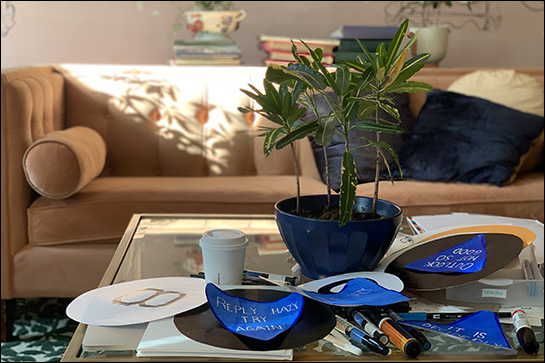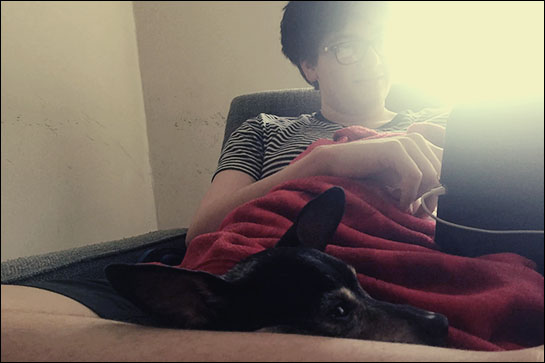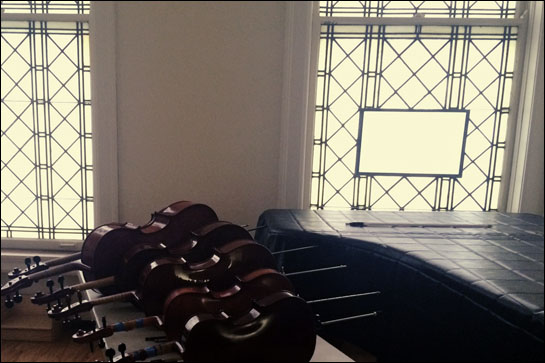
When it comes to sensory input, change the environment rather than the person. That’s why I made a castle for myself to sleep in. Once I understood my sensory integration dysfunction, I noticed I adjust my environment for sensory needs all the time, unconsciously — the castle is one of many places where I make sure the light is yellow.

The majority of kids with autism have sensory issues, and a classroom is a difficult place to get sensory needs met. Kids are much more likely to get their sensory needs met at home, where they can control the environment. (Pre-emptive strike: an office is a place that has very clear sensory limits and guidelines. A classroom is much more wild because of the kid factor.)
My memories of school are largely focused on avoiding difficult sensory situations. I skipped lunch because of chaos of a hundred kids getting lunch simultaneously. I walked two miles home instead of taking the bus because I couldn’t stand still to wait for it. I ditched gym class because of the lockers slamming.
In hindsight I spent way more energy managing my sensory environment than I did learning school lessons. Not that anything has changed: I think about my balancing my sensory needs vs. my kids’ needs all the time, but it helps a lot that I have way more control over my environment as an adult.
This is an example of why a lot of autism researchers say we should change the environment instead of the person.











